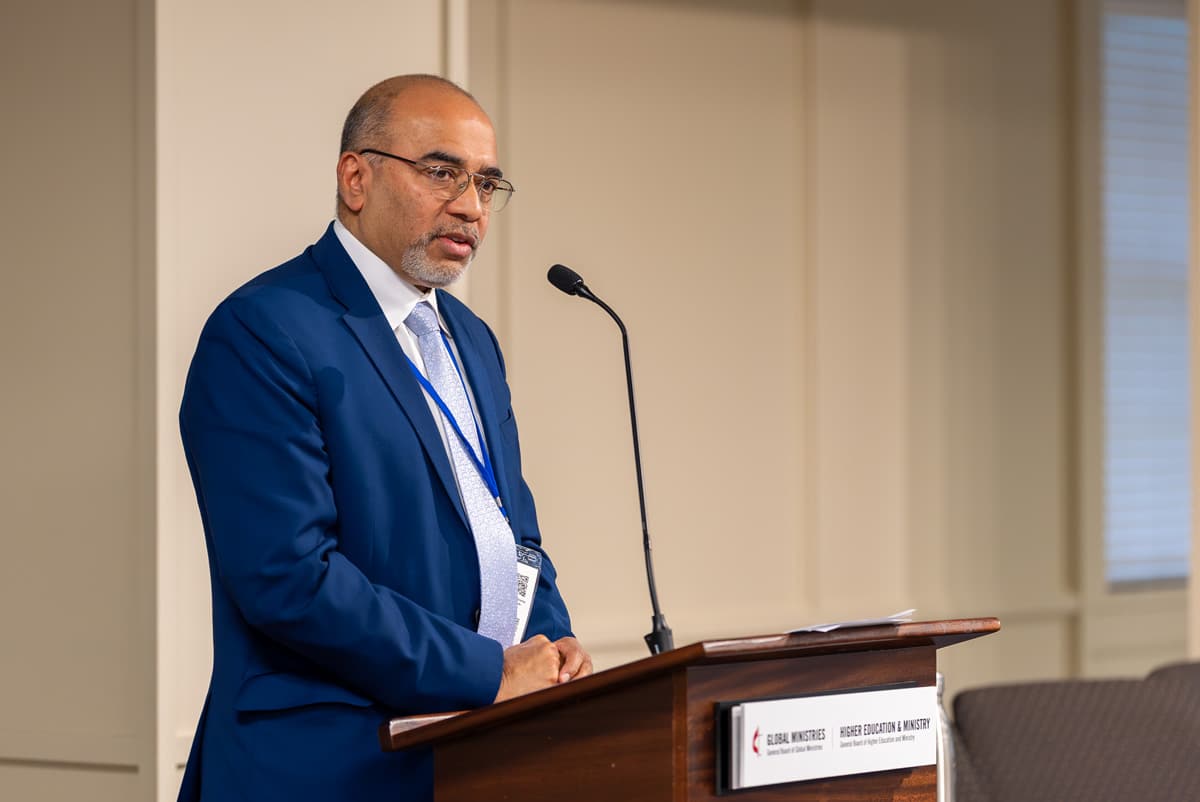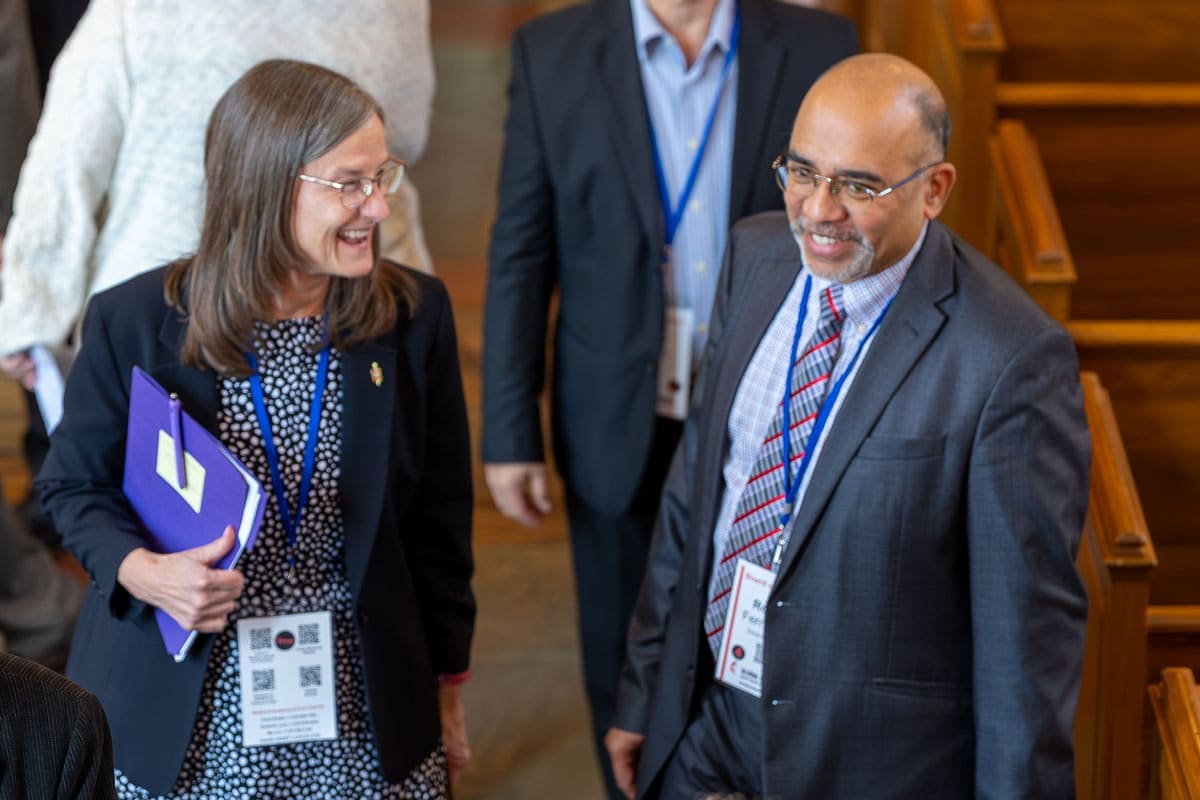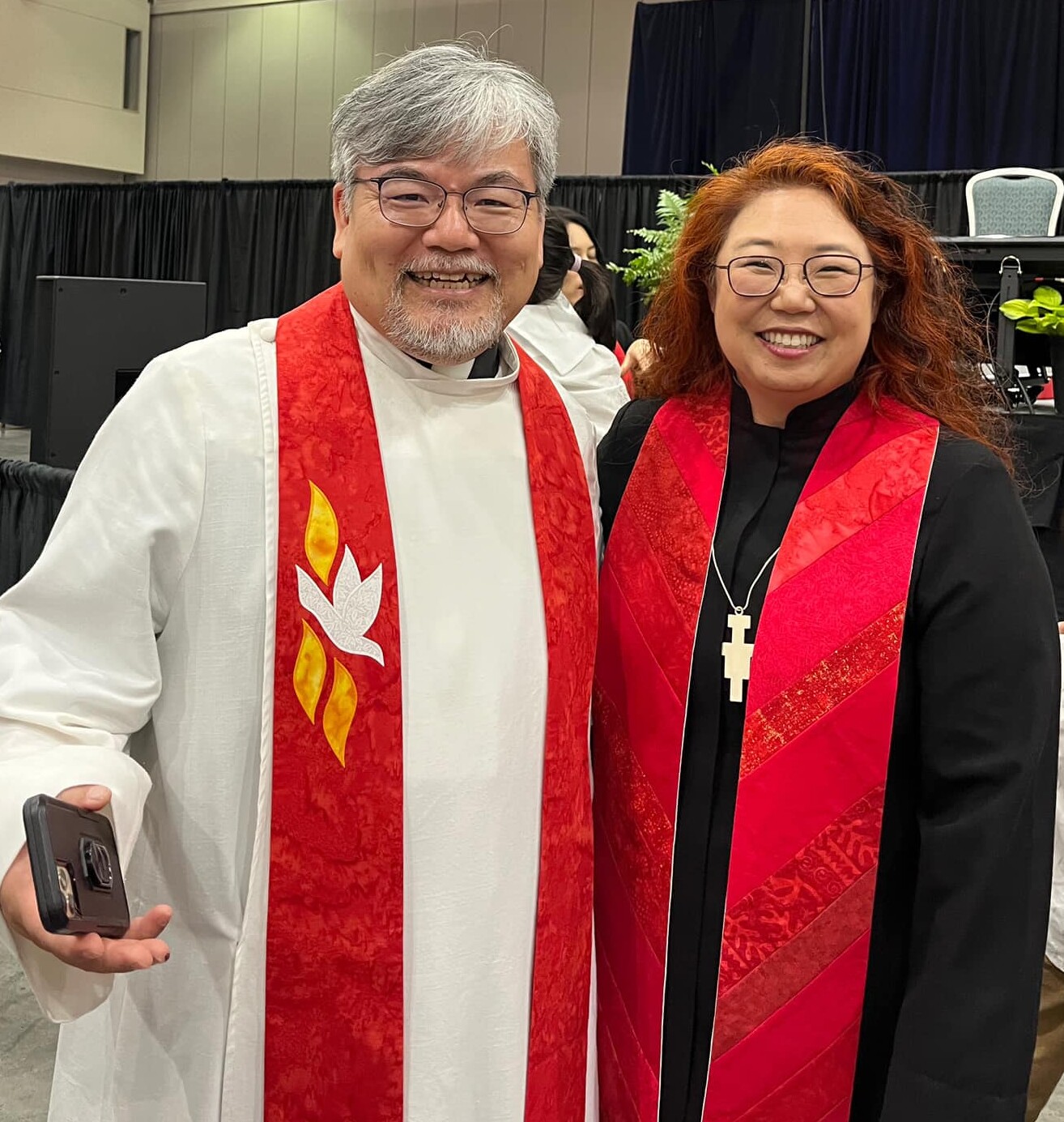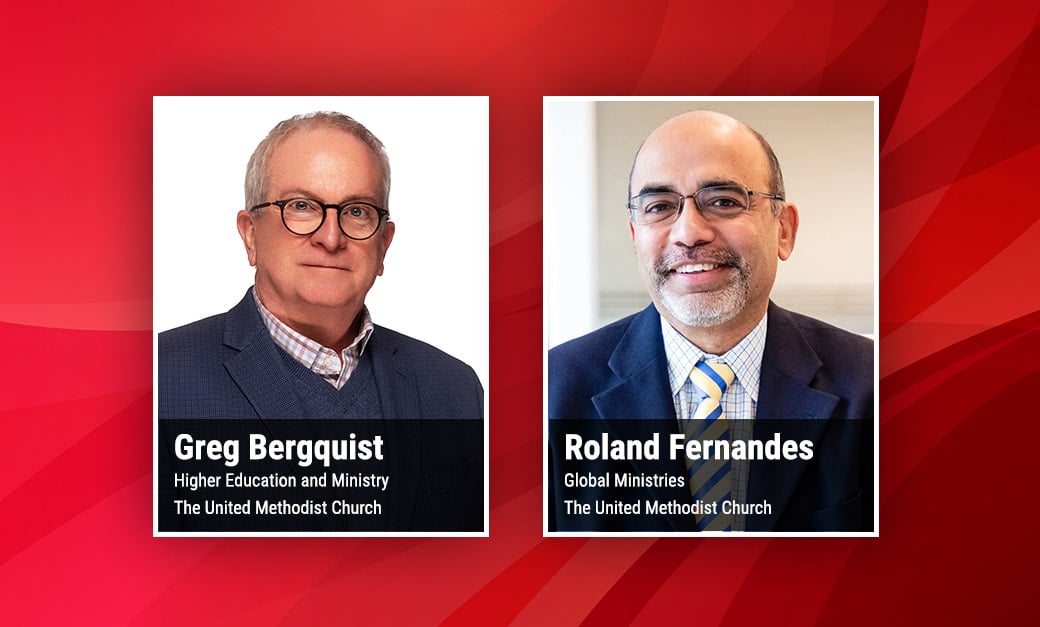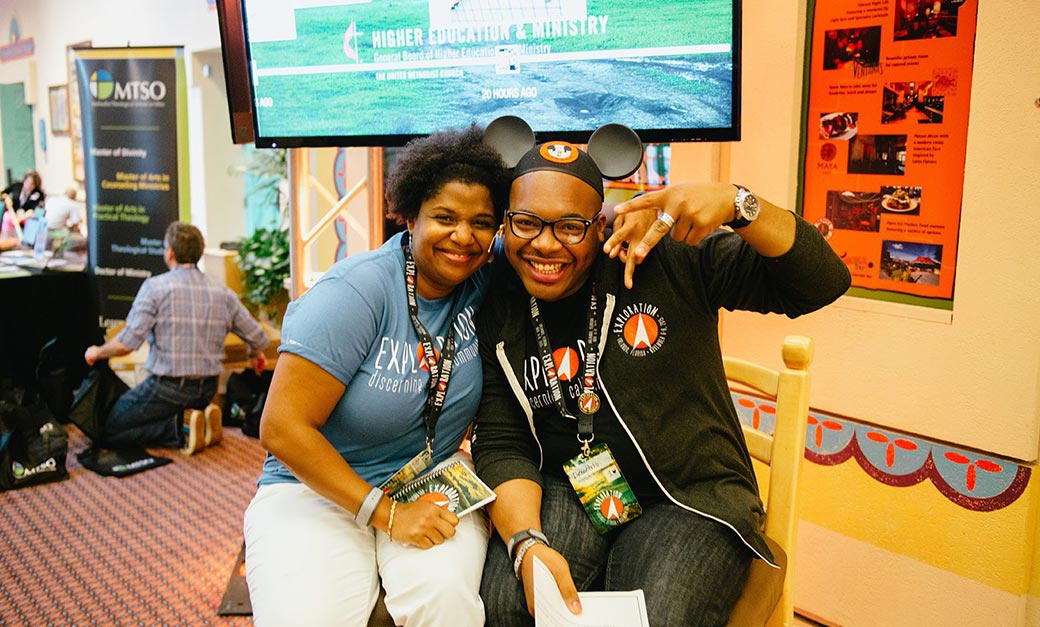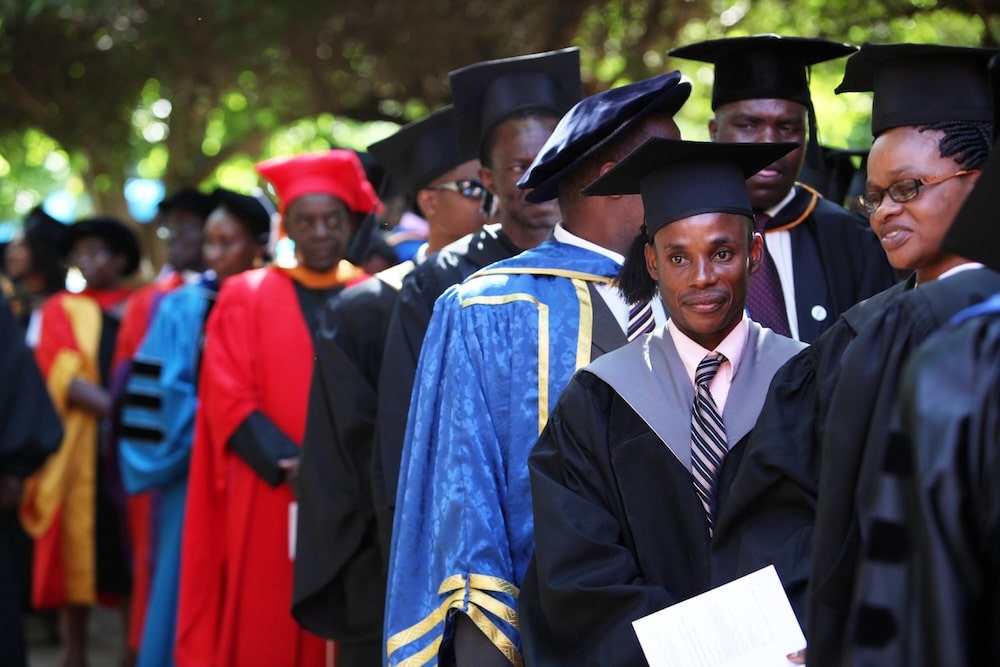‘Connecting people to opportunities’: Rust College’s first woman president
By Jessica Love

Former mayor of San Antonio, Texas Dr. Ivy Taylor, was recently elected as Rust College’s first woman president. She is the 12th president in the college’s 154-year history.
Rust College, founded in 1866 in Holly Spring, Mississippi, is the oldest of the 11 Historically Black Colleges and Universities supported by the United Methodist Black College Fund – a fund administered by the United Methodist General Board of Higher Education and Ministry (GBHEM).
Growing up in Queens New York exposed to limited opportunities, Taylor never dreamed she would be the first African American mayor of San Antonio, let alone the first woman president of a historic institution like Rust College.
“My family provided a stable home background, but they weren’t into enrichment activities,” Taylor recounted, “My family was just really focused on me doing well in school. Their lives revolved around the church. So, it was really hard to envision what my future could be like because my circle of influence was very limited.”
Yet, Taylor’s mother’s wildest dream inspired her to do and be more.
“My mother told me that when she graduated from her segregated high school in Wilmington, North Carolina in 1963, the valedictorian went to Yale,” Taylor said. “She nurtured a secret dream that she would send her child to Yale ever since then… So, I think it’s amazing that even though she didn’t have the chance to go to college, she dreamed the biggest dream possible for her own child.”
Taylor earned her bachelor’s degree from Yale University in 1992.
Connecting people to opportunities
Taylor moved to San Antonio, Texas shortly after graduating from college. While working for an affordable housing agency in 2004, she discovered that she was called to connect people to the enrichment opportunities she lacked exposure to as a child.
In her role at Merced Housing Texas, Taylor organized on-site career and educational services and built community partnerships.
“I thought it was so great,” Taylor said. “I was like, ‘We’re providing safe affordable places for people to live. We’re providing resources for them to build themselves up in life.’ But what I discovered is that residents couldn’t even take advantage of the classes and programs because their lives were so chaotic and unstable… So, I really began to understand that the path to greater stability for these families was improving their educational outcomes. That was the spark.”
Inspired to do more for her community, Taylor became a San Antonio city council member in 2009. That is when she learned of Huston–Tillotson University and the rich legacy of HBCUs.
Huston-Tillotson, located in Austin, Texas, is also an HBCU supported by the United Methodist Black College Fund.
“My parents didn’t go to college, and then I grew up in the north,” Taylor explained. “So, none of the teachers at school talked about or introduced me to HBCUs at that time. It wasn’t until I was a council member that I started actually visiting the schools in Texas, that I really started to have a richer understanding of their impact.”
Planting the seed: HBCUs, a legacy of changing lives
The impact of the school’s rich history inspired Taylor to navigate further into higher education leadership at HBCUs.
“Black people used to be limited to living in east Austin because of red lining and segregation rules, Taylor explained. “So, HT [Huston-Tillotson] was literally a strong hold and a reflection of the Black history and culture in a neighborhood that was completely changing and turning.”
As an urban planner, Taylor said seeing that impact “planted the seed for her.”
“I wanted to be a part of that action,” Taylor added. “I wanted to lead an HBCU. I wanted to be part of that legacy and those contributions to changing lives.”
Taylor said Huston-Tillotson and other HBCUs are just as important now as they were during the Reconstruction Era in changing notions about Black Americans, shaping future Black leaders, and giving voice and opportunity for Black Americans to learn more about themselves and preserve their history.
“HBCUs are more of a safe space for people to be always thinking and talking about Black issues,” Taylor explained.
Taylor receives her doctorate in higher education management from the University of Pennsylvania this month. Her dissertation allowed her to dig deeper into the history, nature and composition of HBCUs. Her research focused on board governance and accreditation at three HBCUs. Taylor’s case study analysis explored the board’s role in helping schools overcome accreditation challenges.
“What I discovered is that when folks think and talk about HBCUs, they usually tend to focus on the role and characteristics of the presidents,” Taylor elaborated, “but they don’t talk as much about the board. And guess who the presidents report to?”
Connecting Rust College to opportunities
Now, Taylor said she is committed to shaping a brighter vision for Rust College by connecting Rust College students to better career and growth opportunities.
“I want to see Rust College move to the next level, to be really grounded in the 21st Century,” she explained. “The college has done a great job of producing fine young people, but I think there’s a richer and deeper experience we can provide by focusing more on technology, enhancing the physical environment and partnerships within the community.”
She was drawn to Rust College by her passion for “connecting people to opportunities.”
Taylor said her first step is to formulate a collective vision with college stakeholders and in less than two months, she has already made significant strides. Under her guidance, the college orchestrated its first virtual commencement and made improvements to its campus and website.
Taylor plans to provide free laptops for enrolled students this academic year. This is one of the many strategic measures she’s outlined to help the college navigate the coronavirus pandemic.
Other measures include reduced dorm capacity and classes, grab-and-go food services, hybrid and rotating class schedules, and mandating mask wearing and temperature checks.
Passion, not a position
The dream Taylor’s mother planted years ago, propelled her into many “first” roles. Today, Taylor stands in the gap as an inspiration to young Black men and women everywhere, the same way the valedictorian of her mother’s class did for her.
“After she died, I was going through her yearbook and I was like, ‘Is that story really true?’”Taylor recalled. “So, I found the valedictorian’s name on Google and I called him…and said I went to Yale because you went to Yale. You never know how your journey is inspiring people that you don’t even know are watching you. I didn’t know, but because of what he did, my mother was inspired to seek that for her child.”
That’s why for Taylor, becoming the first Black women president of Rust College is so much more than a title, it’s a passion.
“It’s about the work,” Taylor said. “At the end of the day, I don’t just want people to say, ‘She was the first woman.’ I want them to say, ‘Her team built this. They redesigned and created this program.’ It really is about the opportunity to shape an institution and change lives.”
About GBHEM: The General Board of Higher Education and Ministry embraces the ministry of learning and leadership formation in The United Methodist Church and Wesleyan tradition; serving Christians around the world who are shaped by a process of intellectual engagement, spiritual and character formation, and leadership development. We cultivate a dynamic culture of call and vocational discernment that encourages lay and clergy leaders to discover, claim and flourish in God’s ministry and mission for the Church, the academy and the world. Follow us on Twitter and Facebook: @GBHEM.
Related Posts
United Methodist mission and education agencies form new boards of directors. October 15, 2024 | by Elliott Wright NASHVILLE, Tenn. – The general boards of Higher Education and Ministry and Global Ministries affirmed their partnership in mission and ministry during a joint meeting of their boards of directors in Nashville...
Higher Education and Ministry and Global Ministries boards meet in Nashville for organization, orientation and connection. Bishop Sandra Steiner-Ball with Roland Fernandes. The bishop gave the sermon during opening worship for the joint GBHEM and GBGM meeting taking place October 14 - 17 in Nashville, Tenn. Photo: Adam Bowers...
Rev. MiRhang Baek, Virginia Annual Conference, The United Methodist Church, with spouse Rev. TaeWon Kang. Participating in the Clinical Pastoral Education (CPE) program at the General Board of Higher Education and Ministry’s Center for Integrative Pastoral Practice (CIPP) has profoundly transformed my self-awareness, personal growth and ministry as...
